The first open house of the year, Curriculum Night allows parents to spend time in your classroom, without their student, so they can explore the school curriculum and learn important information about the upcoming school year. Most importantly, it is an opportunity for teachers to begin to form relationships with parents, answer any questions, and familiarize them with classroom expectations, school procedures, and the curriculum their student will be using. In this post, I’ll share what to include in your Curriculum Night PowerPoint so you can confidently present to your parents.
On the day of your open house, have students write a note to their parents and leave it on their desk. As parents arrive for the open house, ask them to sit at their student’s desk. Parents are always delighted to be greeted by a note from their child.
How to make a Curriculum Night PowerPoint
Make a PowerPoint slide for each of the following topics to help you communicate key information to your parents. For examples and templates, I have open house PowerPoint templates in my shop that you can easily customize to fit your classroom. Click here for a colorful brights theme, and Click here for a burlap & chalkboard theme.
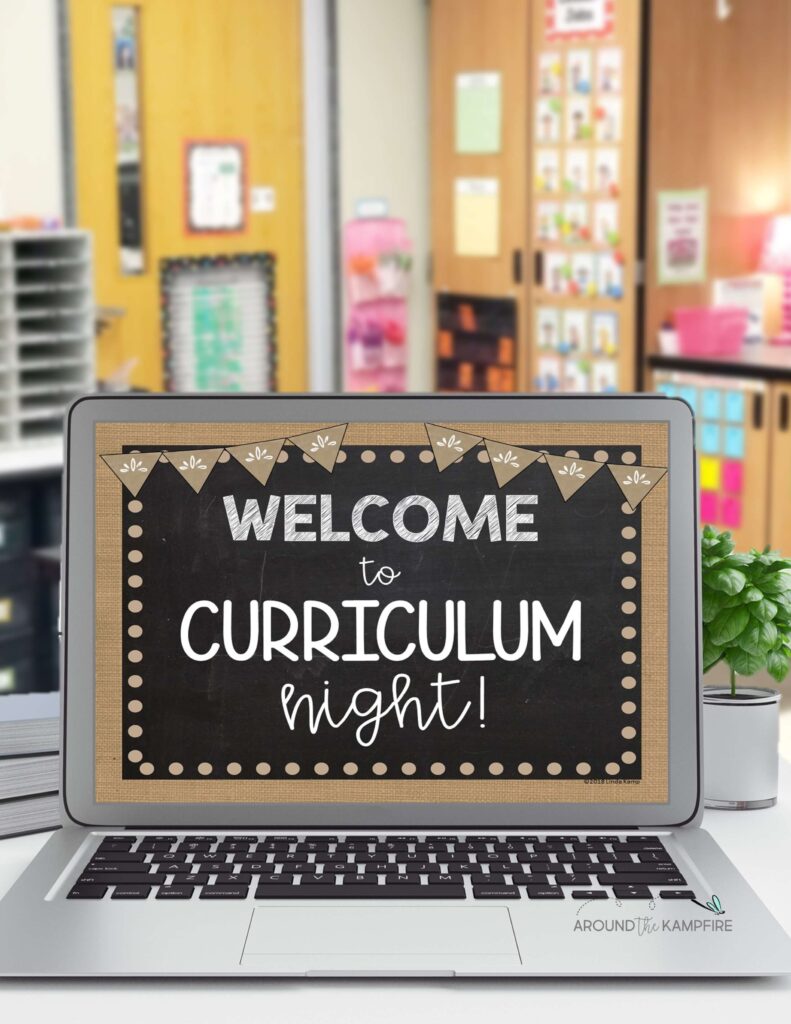
Farmhouse theme PowerPoint template source
For things like homework, behavior logs, and spelling lists, it is helpful to take a screenshot of the pages and include them on the appropriate slides so that parents know what to look for when homework begins coming home.
Using a Curriculum Night PowerPoint slideshow ensures that you cover all of the important things you need to communicate, even when you’re nervous about presenting to your parents. However, there are always parents who can’t attend. I place printable copies of some of this information on students’ desks so parents have it at home to refer to.
Topics to include in your parent presentation
Teacher Contact Information
Provide your contact information and let parents know how to reach you, whether by phone, email, notes sent to you in the homework folder, etc. Parents appreciate you being available and listening to their questions or concerns. At the beginning of the year there will always be lots of questions, so do your best to answer them as families get into a school routine.
Student Expectations
Provide parents with a clear and concise list of student expectations. This could include things such as coming to school on time and prepared, eating a healthy breakfast, following school and classroom rules, behavior expectations, chool uniform policies, etc. Providing parents with the policies and expectations upfront can reduce problems later.
Classroom Schedule
Provide parents with a daily classroom schedule as well as a special classes schedule. Parents appreciate knowing what their child’s day looks like and it is helpful when they have to schedule appointments that can’t be made after school. Sharing your class schedule helps parents remind their younger students when to wear tennis shoes for P.E. and when library books are due back.
Grading Policies
List any grading policies for students and provide grade level rubrics. Make sure to include grading rubrics specific for all subject areas.
Assessments
Communicate the formal assessments and informal assessments that students will complete during the school year. This could include state testing, district quarterly assessments, Acadience Reading (formerly DIBELS), Accelerated Reader, etc. It’s also important to let parents know when these assessments take place.
School Wide Character Programs
If your campus has a school wide character education program, provide your parents with that information. Explain how it works, and why it is important. These programs might include Leader In Me, Character Counts, Values in Action, The Character Effect, Giraffe Project, etc.
Communicate Classroom Procedures & Expectations
Homework Procedures and Behavior Expectations
Curriculum night is a golden opportunity to explain your weekly homework routine to parents. Communicate what the homework requirements are and exactly what it will look like.
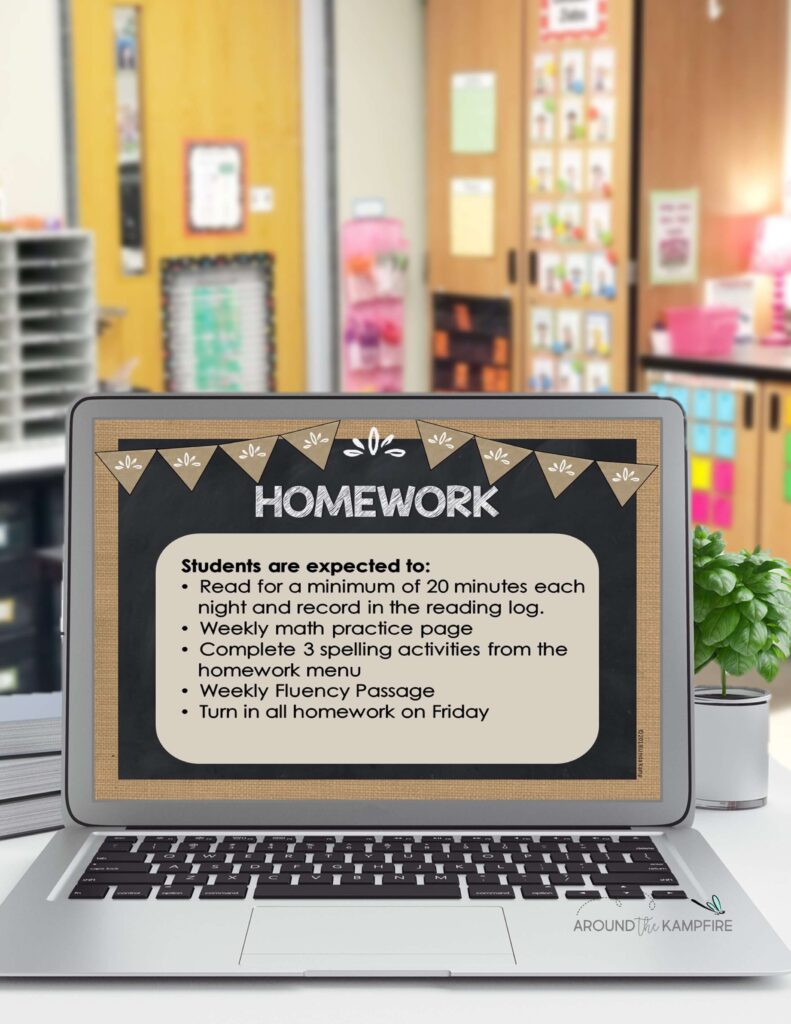
For example, including a picture of what spelling lists, reading logs, or anything you’ll send home weekly, will familiarize parents with the routine. Make sure to include when homework is due and how their child should turn it in.
Explain your behavior plan and procedures. Show parents where they can check their child’s behavior each day and communicate with you if needed.
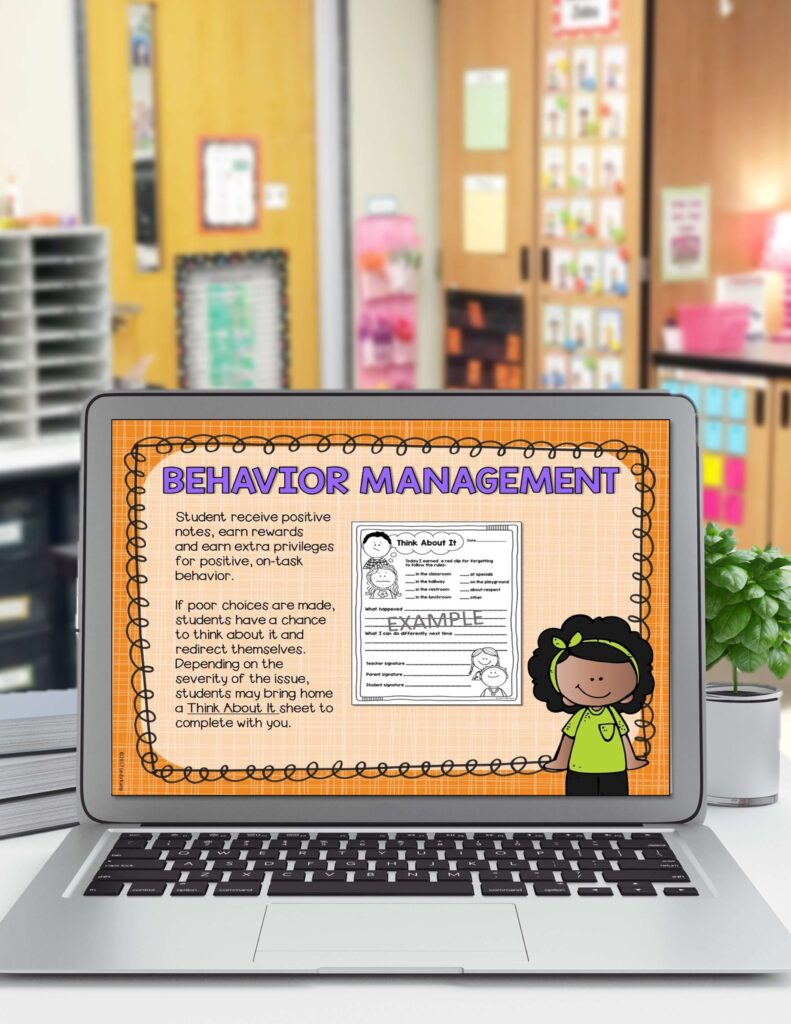
Brights theme PowerPoint template source
Curriculum & Standards
Make a slide for each of the different subject areas taught. Explain what programs are used and the different features of those programs. Provide login information for any websites used with the curriculum and explain home practice expectations if you have them.
Make parents aware of the key standards in your grade level. Consider making a list of priority standards or sharing links to a website for parents to read later.
Volunteer Information
Provide parents with a list of ways they can volunteer in and out of the classroom. Have volunteer forms available so parents can sign up if they wish. If your school requires background checks for all volunteers, have that paperwork available as well.
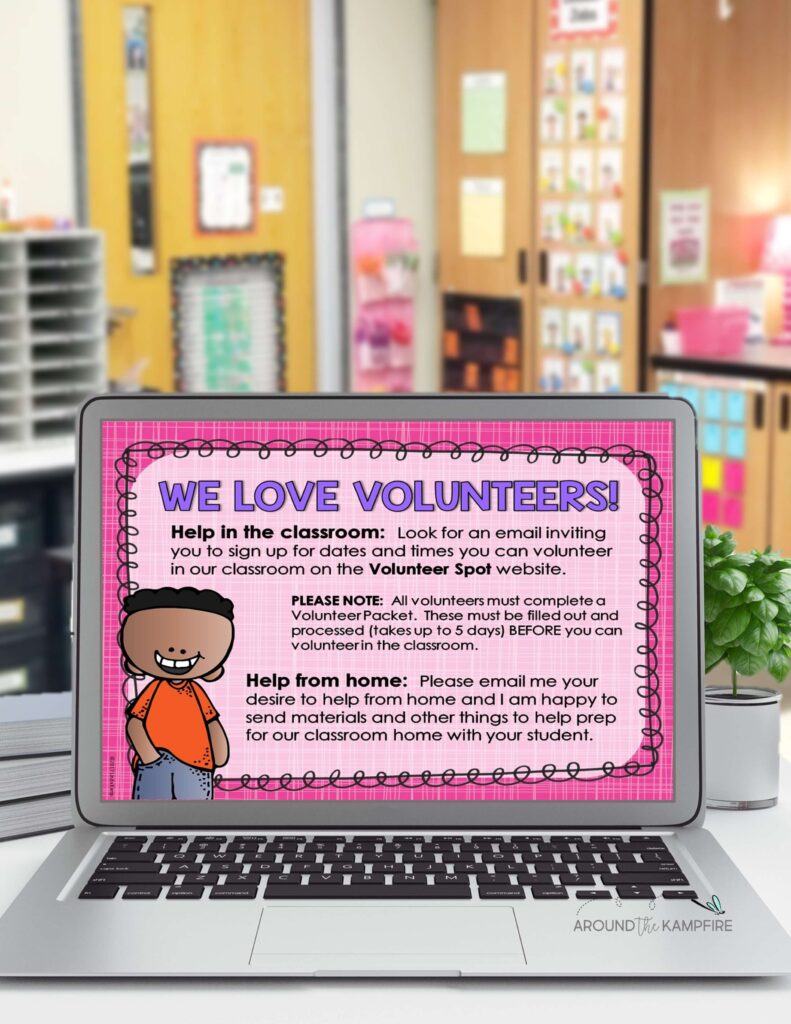
Curriculum Night PowerPoint template source
Provide Time for Questions
Thank parents for coming to Curriculum Night and allow time for a Q&A. Remind parents that they can always contact you with any questions that come up later so you can avoid confusion the first weeks of school.
Curriculum Night Parent Forms
Make copies of the following forms and information and place a set at each student’s desk.
- Daily class schedule
- Specials schedule
- Memos from the PTA
- School calendar- including breaks, picture day, etc.
- Information on where to purchase school uniforms
- After school programs available
- Any Meet the Teacher forms that were not returned
Get a FREE Curriculum Night checklist
Presenting to Parents as a Team
Some schools ask grade level teams to present to parents all together on Curriculum Night. If you are required to present as a grade level team, it is important that your team is consistent with the same grading policies, class schedules, homework routines, assessments, etc. When routines are consistent across the grade level, it prevents confusion and, most importantly, ensures your open house to run smoothly!
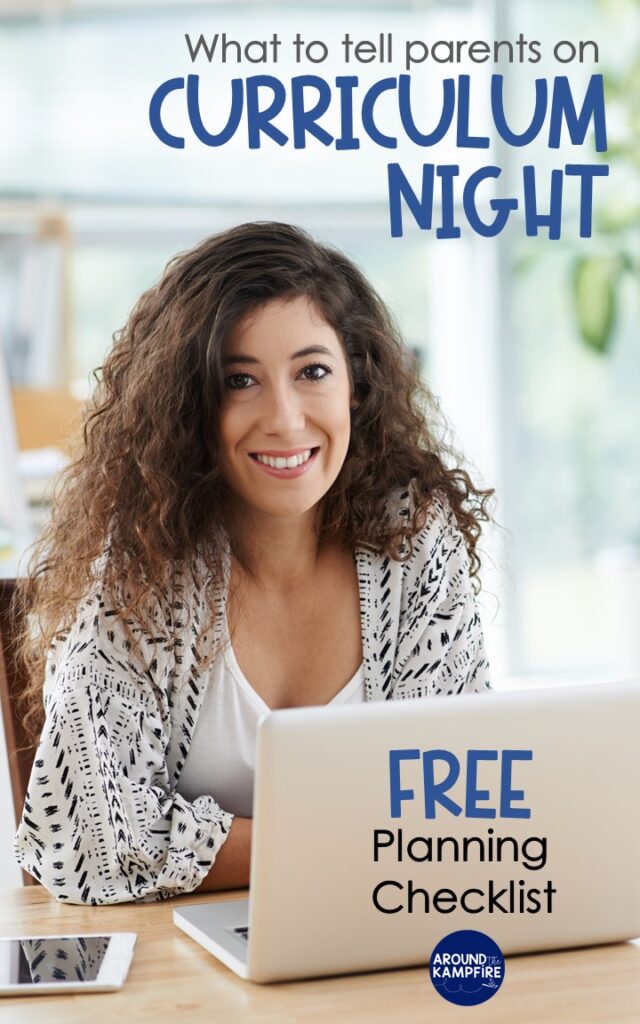
For more open house ideas and tips, visit these posts:
How to Plan a Stress-Free Meet the Teacher Night
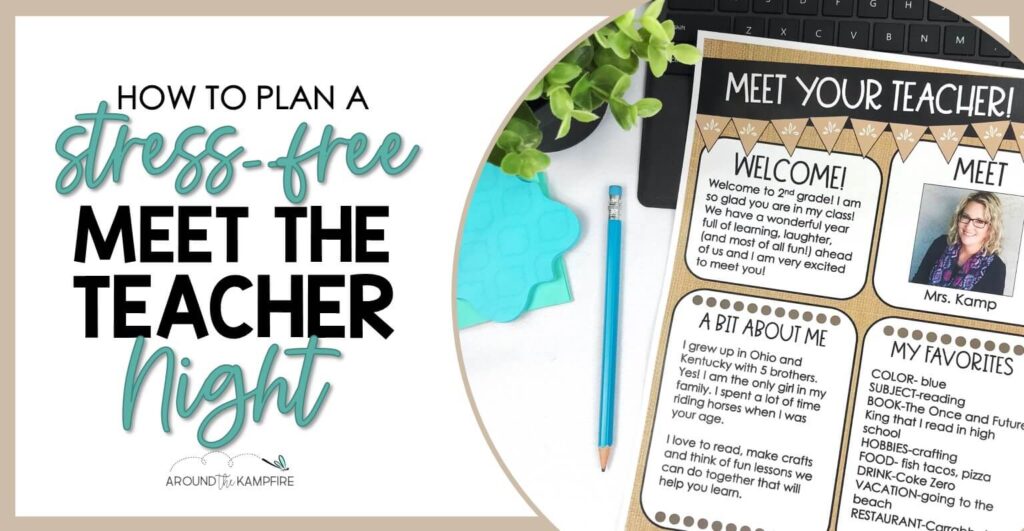
Meet the Teacher Management Tips
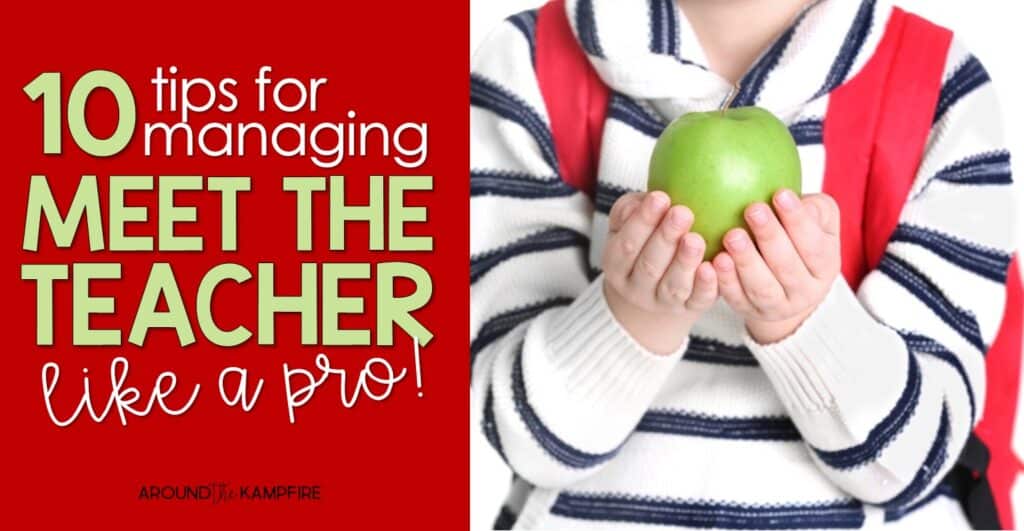

Happy teaching!

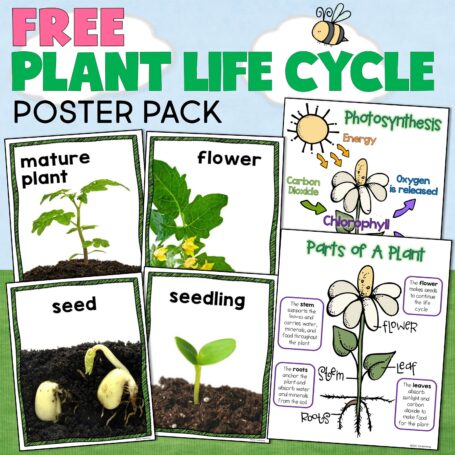
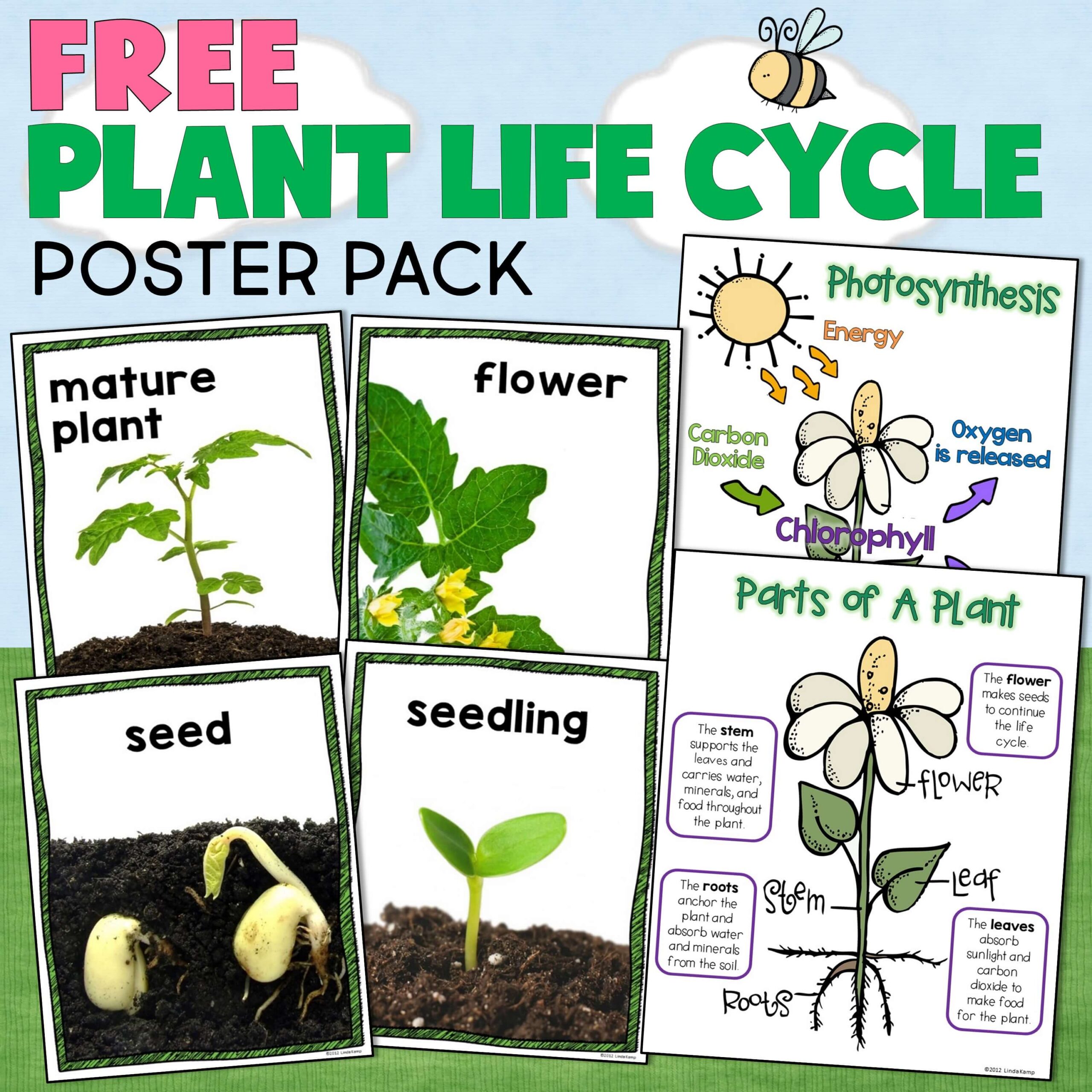

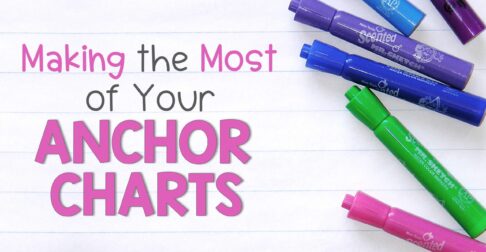


Leave a Comment